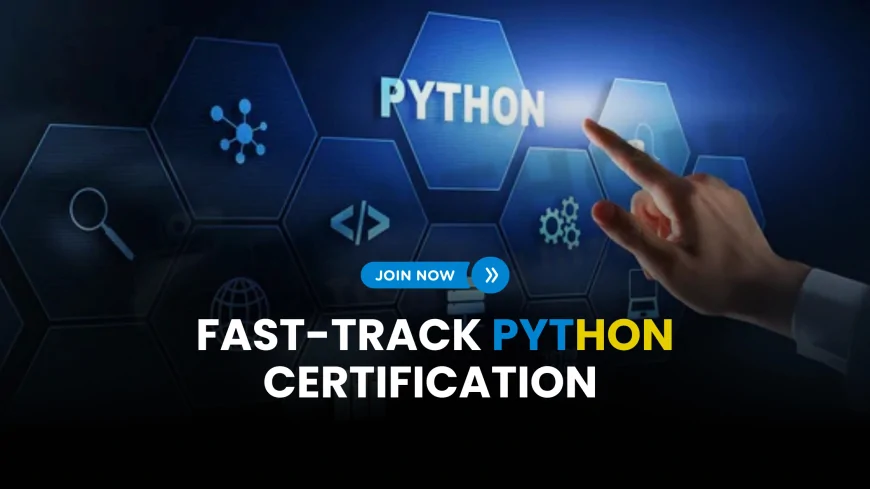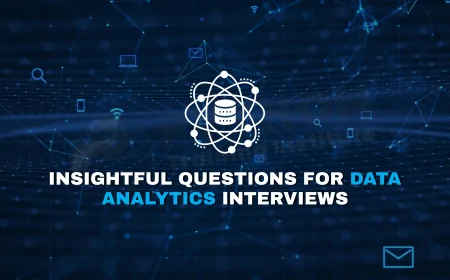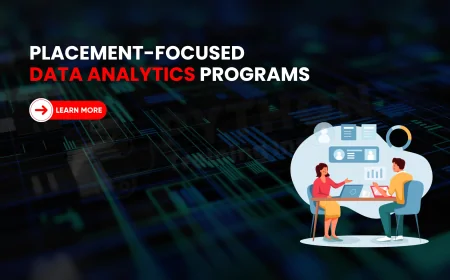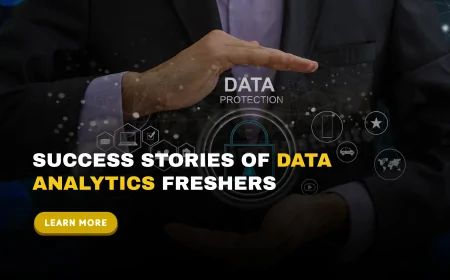Quick Certification Options for Python in Pune | Intensive Python Training for Quick Certification in Pune
Discover the fastest and most effective ways to learn Python in Pune. Explore expert tips, top courses, bootcamps, and resources to become a Python pro quickly.

1. Introduction
Pune’s technology ecosystem—stretching from Hinjewadi’s IT parks to the startup lanes of Baner—is hungry for Python talent. Yet not everyone can spare six months for a full-length program. Quick certification tracks (2–8 weeks) solve that problem: they deliver high-impact learning, verified credentials, and often a pathway to internships or entry-level jobs—all in record time.
2. Why Get Certified Quickly?
- Speed to market: Land interviews in weeks, not quarters.
- Career pivots: Upskill fast when shifting from non-tech roles.
- University add-on: Final-year students boost placement chances.
- Freelancers: Show clients tangible proof of skills.
3. Benefits of Fast-Track Certifications
Besides speed, you gain:
- Project-centric learning that mirrors real company tasks.
- Compact fees (₹4 k–₹20 k) versus long-form diplomas.
- Flexible schedules—evening, weekend, or fully asynchronous.
- Placement cells or recruiter networks built into many Pune institutes.
4. Python Job Market in Pune
A 2025 survey of four major job portals shows 34 % YOY growth in Python openings across data science, automation, and web development. Employers include:
- MNCs: Infosys, Cognizant, Accenture, TCS
- Product start-ups: MindTickle, Druva, PubMatic
- FinTech firms: Zeta, Walnut, EarlySalary
5. Top Institutes for Quick Certification
Each of these offers 4-to-8-week programs with certificates and recruiter tie-ups:
WebAsha Technologies
A leading name in Pune for fast-paced Python certification:
Highlights
-
30–45 day bootcamps covering everything from Python basics to real-world applications
-
Global-standard certification accredited at their own exam center
-
Hands-on projects like Django/Flask apps, automation scripts, and data dashboards
-
100% placement support — mock interviews, resume prep, and alumni networks
-
Flexible class timings—weekdays, weekends, online & offline
-
Free exam retake within 15 days if needed
6. Course Durations & Formats
Choose what matches your calendar:
- Bootcamps: 2–4 weeks, daily 3–4 h, immersive.
- Weekend Courses: 4–6 weeks, Sat–Sun 5 h/day.
- Live-Online Fast Track: 3 weeks, 90-minute evening sessions + labs.
- Self-Paced: 6 weeks average; quizzes unlock next module.
7. What You Will Learn
- Python Essentials (syntax, variables, loops, functions)
- OOP fundamentals
- File I/O & error handling
- Virtual environments & pip
- Key libraries—
NumPy,Pandas,Requests - Mini-framework (Flask or FastAPI) for a REST micro-service
- Automation script or web-scraper project
- Git basics & GitHub portfolio setup
8. Popular Certification Types
- Core Python Developer – pure language mastery.
- Python + Data Analysis – Pandas & Matplotlib focus.
- Python for Automation Testing – Selenium, PyTest.
- Python Web Dev Fast Track – Flask/Django micro-course.
- Python Crash-Course for Engineers – fits college semester gap.
9. Online vs Offline vs Hybrid
Online means on-demand videos or live Zoom; Offline offers lab PCs and instant face-to-face doubt clearing; Hybrid blends both—video lessons + weekend lab sprint.
10. Cost & Financing Options
Expect:
- Self-paced video courses: ₹4 k–₹7 k.
- Bootcamps / weekend: ₹8 k–₹18 k.
- Hybrid with placement cell: ₹15 k–₹25 k.
Most institutes partner with fintechs for 0 % EMI. A few offer pay-after-placement (ISA) schemes capped at 10 % of first-year salary.
11. How to Choose the Right Program
- Map the certificate to your career goal—dev, data, or testing.
- Verify trainer profiles (LinkedIn, GitHub).
- Ask for a syllabus PDF & demo class.
- Check placement records—names, logos, salary bands.
- Read Google & MouthShut reviews; look for outcome evidence.
12. Preparation Tips for Quick Success
- Block 90 min every day for coding practice.
- Solve 25+ easy problems on HackerRank before course starts.
- Maintain a GitHub repo; push every assignment.
- Pair program with a cohort peer twice a week.
13. Resume-Worthy Mini-Projects
- Stock-price web-scraper → CSV.
- REST API for task tracker (
FastAPI). - PDF invoice generator using
ReportLab. - Weather dashboard using OpenWeather API.
- Instagram automation bot (selenium).
14. Free & Paid Learning Resources
Free: RealPython articles, Corey Schafer’s YouTube series, W3Schools, PyBites kata.
Paid but low-cost: Udemy’s “Automate the Boring Stuff” (< ₹500 in sale), Coursera’s U-Michigan Python specialization.
15. Certification Recognition & Value
Recruiters in Pune increasingly accept:
- Institute-issued certificates with project GitHub links.
- Python Institute PCEP/PCAP—globally standardized exams.
- Coursera Professional Certificates co-branded by universities.
16. Options for Working Professionals
Pick programs with:
- Evening live-online (7 – 9 pm IST)
- Weekend Marathons (Sat + Sun 9 – 2)
- Lifetime LMS access for later revision
- Slack/Discord doubt channels
17. Government-Approved Short Courses
Pune has NSDC & Skill India centers offering subsidized Python certifications. Some engineering colleges run AICTE-approved Finishing School crash courses during semester breaks—fees as low as ₹1 999.
18. Enrollment Process in Pune
- Submit enquiry form → get curriculum PDF.
- Attend free demo.
- Pay booking amount (often ₹1 000).
- Select batch slot (online portal).
- Receive LMS login + pre-work kit.
19. Frequently Asked Questions (FAQs)
1. How fast can I complete a Python certification in Pune?
Bootcamps last 2–4 weeks; weekend tracks 4–6 weeks; self-paced courses allow completion anytime once assessments are cleared.
2. Is a quick certification enough to get a job?
Yes—if it includes hands-on projects and you can showcase GitHub work during interviews.
3. What is the average starting salary after certification?
Entry-level Python roles in Pune pay ₹3 – 5 LPA; data-focused roles may start slightly higher.
4. Do institutes really provide placement support?
Reputed centers host in-house drives, share recruiter leads, and prep you with mock interviews; verify their placement stats.
5. Can I learn Python online while in college?
Absolutely—choose live-online or self-paced tracks that fit around lectures and exams.
6. Do I need prior coding experience?
No; most fast-track programs start from zero and gradually introduce advanced topics.
7. Are EMI or pay-later options available?
Yes, many institutes partner with fintech lenders for 0 % EMI; some offer Income-Share Agreements.
8. Which certification exam is globally recognized?
The Python Institute’s PCEP and PCAP exams are vendor-neutral and widely accepted.
9. Will I get a hard-copy certificate?
Most provide digital certificates; some hand out printed versions during convocation events.
10. Are government-subsidized programs worth it?
They’re cost-effective but may lack personalized mentoring—balance savings with support needs.
11. What hardware/software do I need?
A laptop with 8 GB RAM, Python 3.x installed (Anaconda or vanilla), and a stable internet connection for online classes.
12. How many projects should I build?
At least three mini-projects plus one capstone to impress recruiters.
13. Do quick certifications cover data science?
Some include a crash module on NumPy/Pandas; opt for a dedicated data-science fast track if that’s your career goal.
14. Can I switch from offline to online mid-course?
Many hybrid institutes allow mode changes on request and seat availability.
15. Will my certificate expire?
No, but skills can—keep coding and update GitHub repos to stay relevant.
16. Are weekend batches very intensive?
Yes—expect 8–10 hours over Sat–Sun plus weekday homework.
17. What’s the difference between a bootcamp and a crash course?
Bootcamps are mentor-led and interactive; crash courses are usually self-paced videos.
18. Can I negotiate course fees?
Group enrollments or early-bird registrations often fetch 10–15 % discounts.
19. Will institutes help with freelancing gigs?
Some run partner marketplaces or freelance mentorship; ask specifically before enrolling.
20. Where can I see alumni success stories?
Check LinkedIn for testimonials, ask institutes for alumni contacts, or attend their open-house demo days.
Quick Python certifications offer a rapid runway into Pune’s vibrant tech market. By focusing on core language skills, bite-sized projects, and recruiter-aligned assessments, these fast-track programs turn absolute beginners or cross-skilling professionals into employable Python developers in just a few weeks. Evaluate institutes on curriculum depth, trainer quality, project rigor, and placement evidence—then commit to daily practice. With Python’s popularity soaring and Pune’s job boards brimming, a compact certification could be the smartest career move you make this year.
20. Conclusion
What's Your Reaction?
 Like
0
Like
0
 Dislike
0
Dislike
0
 Love
0
Love
0
 Funny
0
Funny
0
 Angry
0
Angry
0
 Sad
0
Sad
0
 Wow
0
Wow
0
















